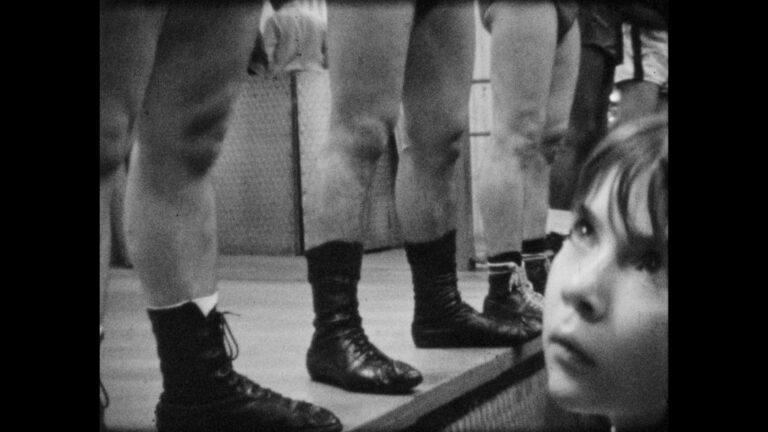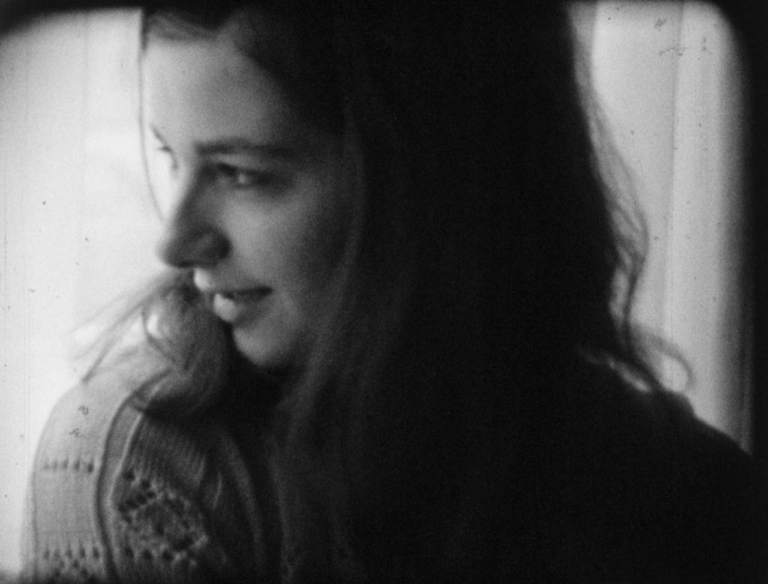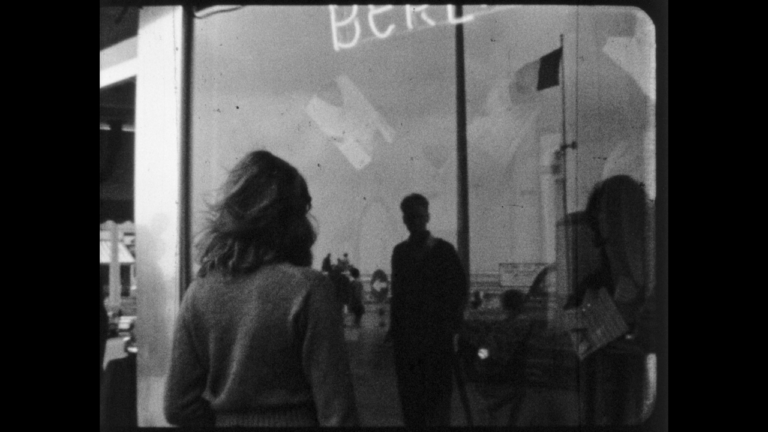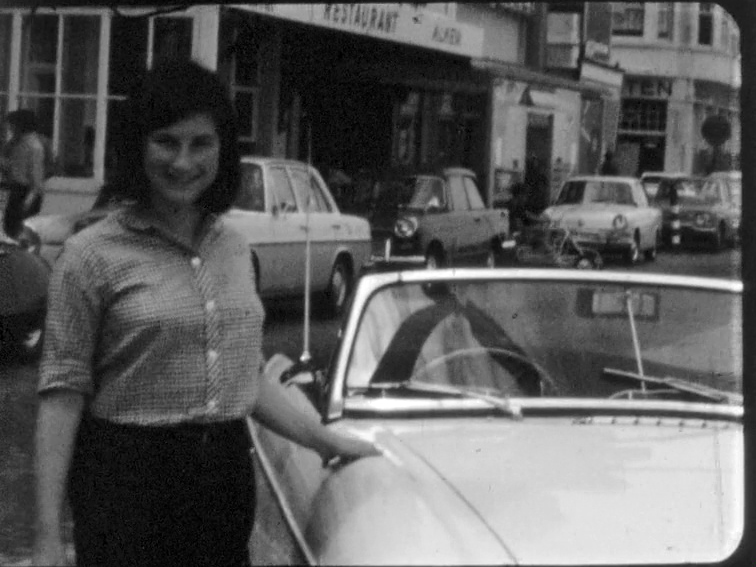In collaboration with Fondation Chantal Akerman and Cinematek
Curated by Giulia Simi
When she was only seventeen years old, Chantal Akerman made these long unpublished, and recently restored short films. While telling her story, now well-known, she states she decided “to be a filmmaker” after watching Jean-Luc Godard’s Pierrot Le Fou and understanding that cinema could be “like poetry”. In the summer of 1967, she took her admission test for the Brussels Film School (INSAS). These 8mm short films drift between the frenetic rhythms of a fair, the ritual patterns of family time, and the syncopated events taking place in the stores of a seaside resort. Watching them now, aware of that disruptive cinema she made in the years to come, one remains enraptured. Akerman’s camera waits and at the same time explores, moving with the sincerity of a cinephile schooled by the nouvelle vague. It is no coincidence that among the places filmed there is the courtyard of the old Hôtel de Clèves-Ravenstein, a stone’s throw from the former museum that she and her friend Marilyn Watelet – several times filmed in these shorts – frequently visited. Her gaze lingers on small gestures – serving some food, washing dishes, slipping on a shoe, brushing one’s hair, or simply holding a boxing glove -, however, she does not forget to cross broad boundaries, where the city is revealed as a space of the event that immediately becomes a narrative. In this way, the vocation for the aesthetics of the visual means, the attraction for abstract images of the everyday – from the lights of the funfair to the curtains of a home window – melt into the incredible ability to create, but also to capture, small stories in the flow of reality. Much later, she will state that it is not possible to separate documentary cinema from fictional cinema, for the real is a complex matter, as well as saying that she wants the audience to feel time passing in her films. Time, she argues, is the only thing we have. With this gift we can immerse ourselves in the days of her beginnings and walk through, for a few minutes, the experience of a very young rebel who will shortly blow up everything – school, home, and town (Saute ma ville comes out just a year later) -, entering into the history of cinema as a woman, without making compromises, and with a radical attitude that has never left her.
Bruxelles, film 1, Bruxelles, film 2, Knokke, film 1 and Knokke, film 2 were made by Chantal Akerman in the summer of 1967, in black and white and without sound, as part of her entrance exams to the Institut Supérieur des Arts du Spectacle (INSAS) in Brussels, where she was admitted and where she stayed only a few months before abandoning her studies.




